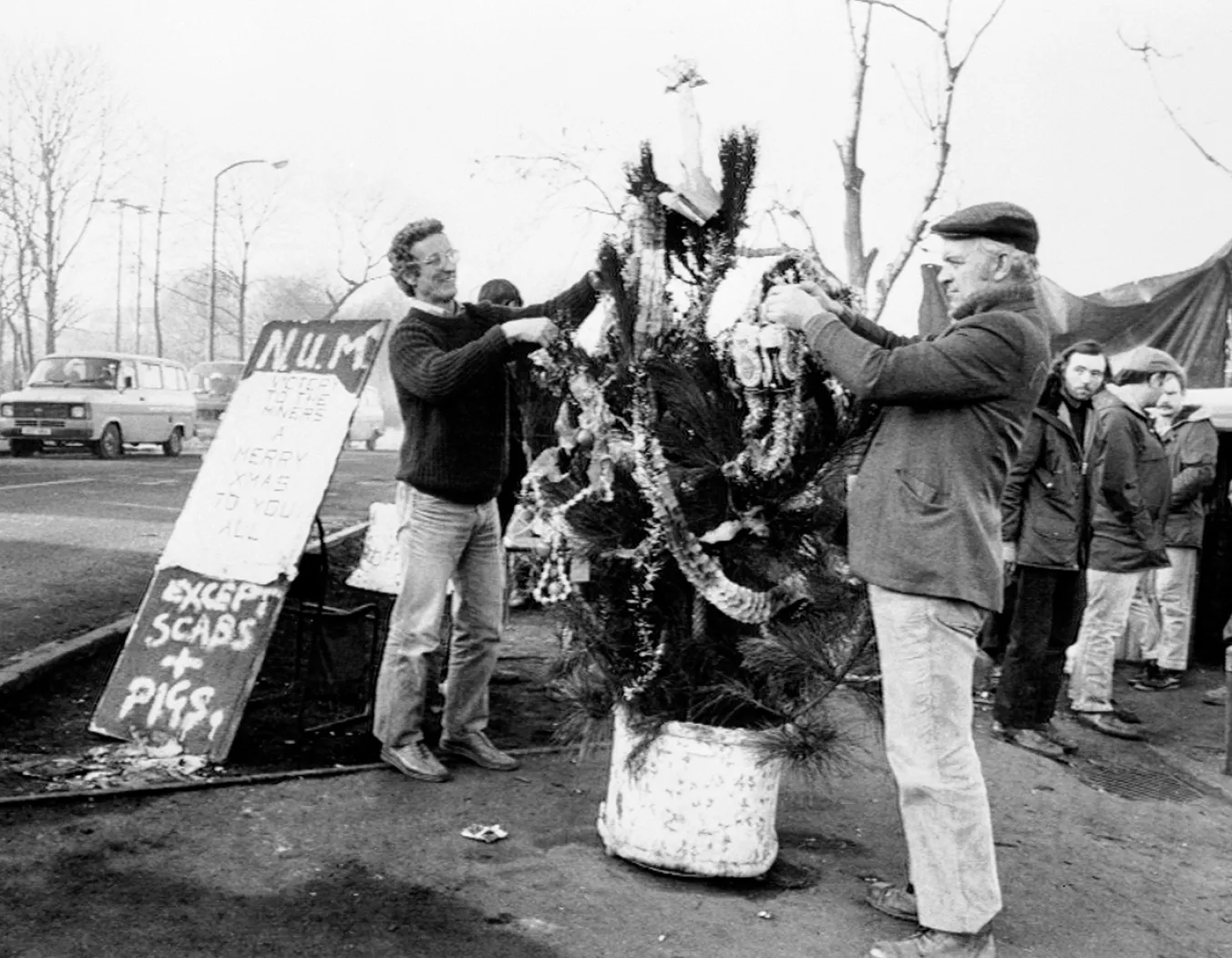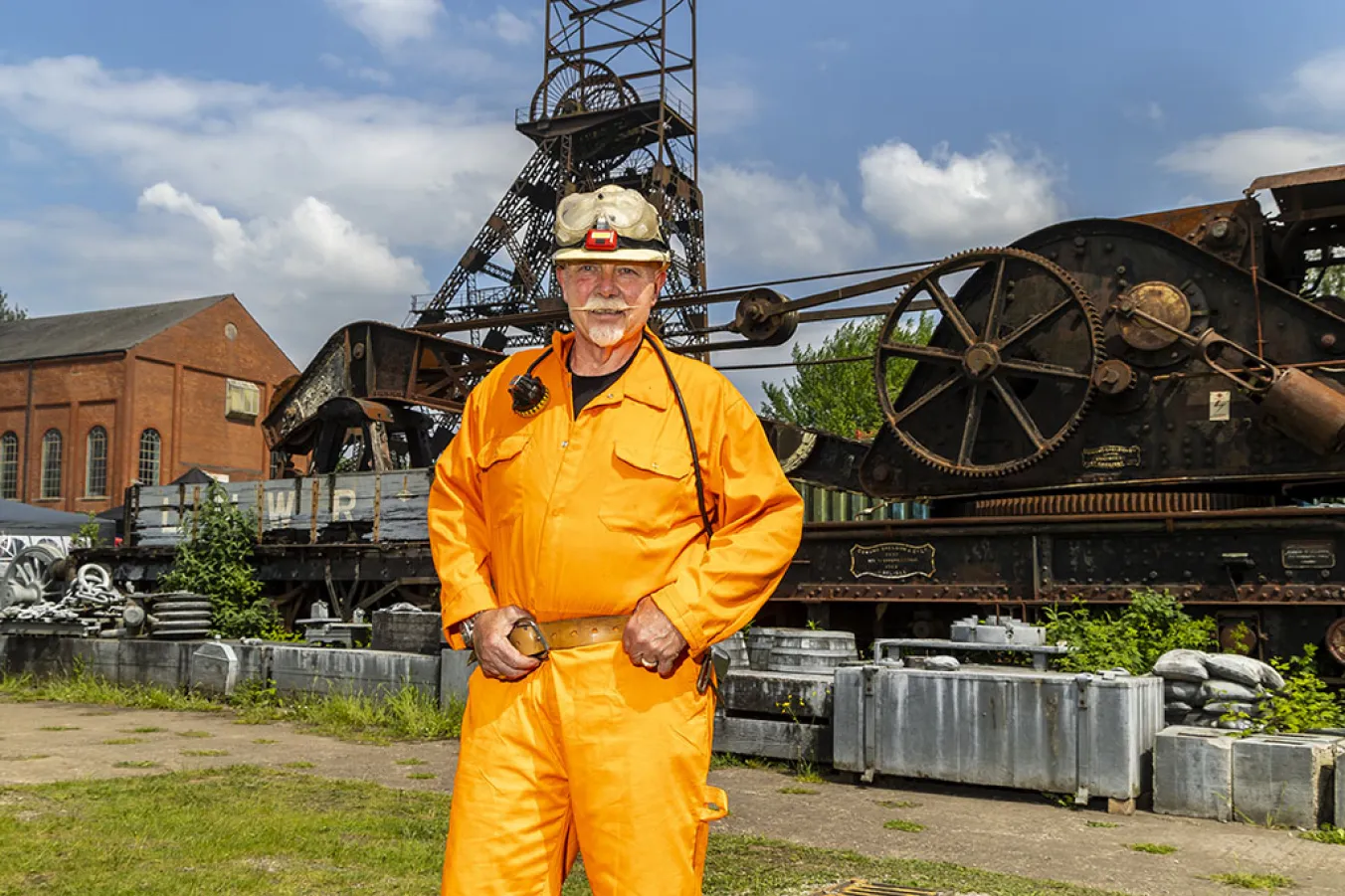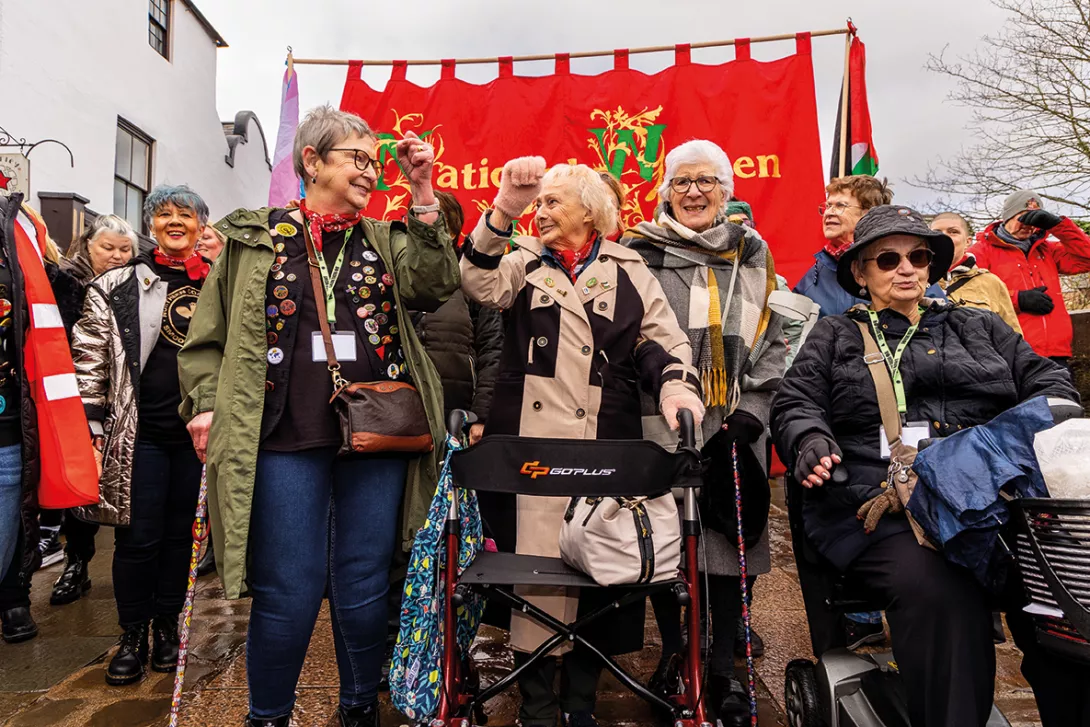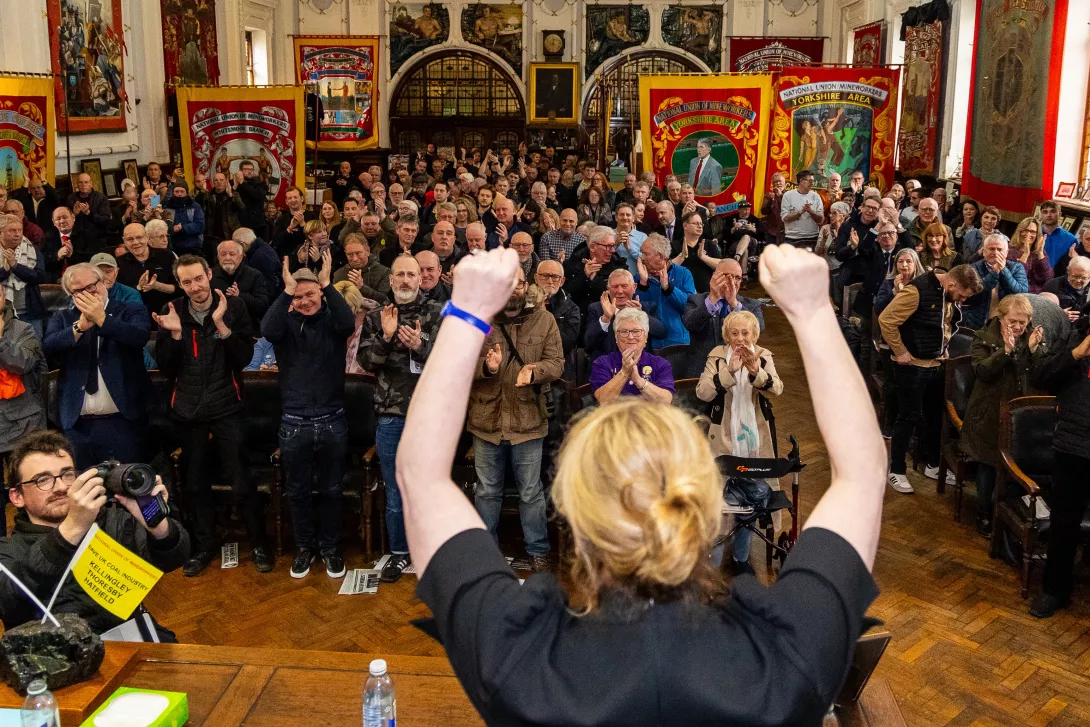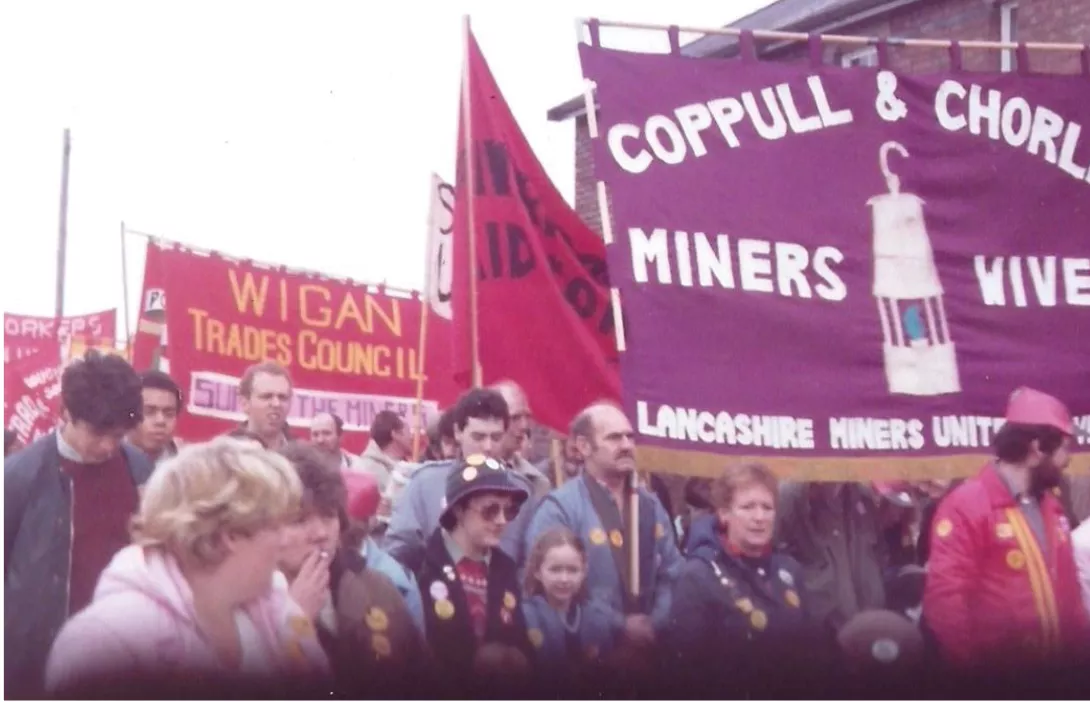
VETERANS from the epic 1984-5 miners’ strike marked the 40th anniversary of the miners’ strike at an exhibition and rally in Coppull, Lancashire, with speakers from the former coalfield and National Women Against Pit Closures.
Organised by Chorley TUC, they shared experiences with activists locally about their role in sustaining the year-long struggle. Members of the National Union of Mineworkers (NUM) had refused to cross picket lines at Parkside, Wigan and Sutton Manor and Bold collieries in the St Helens area, set up by striking miners from Yorkshire, in March 1984.
They were resisting the threatened closure of pits and consequent devastation of local communities. It marked the start of the year-long miners’ strike that drew support from the labour movement across the world.
